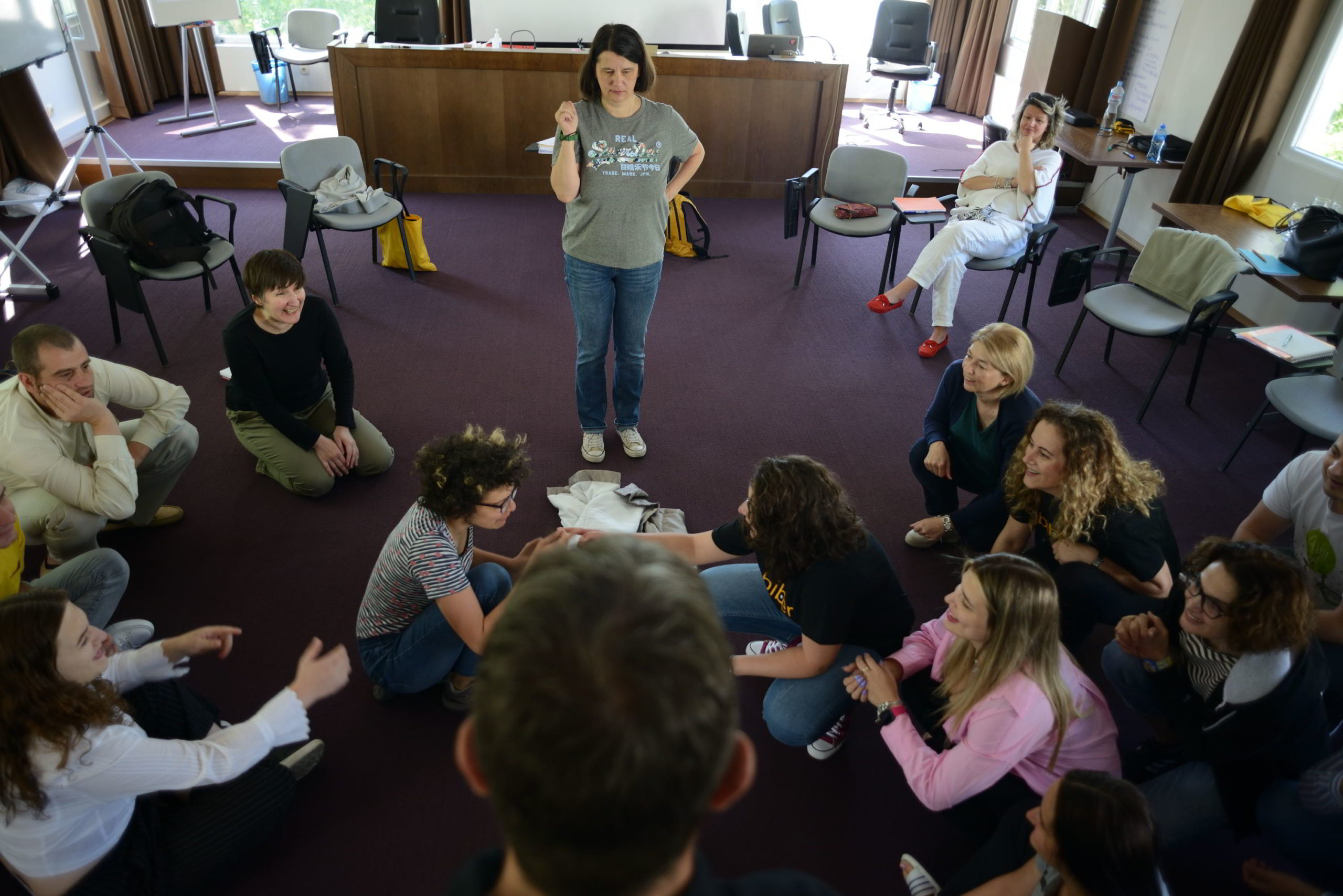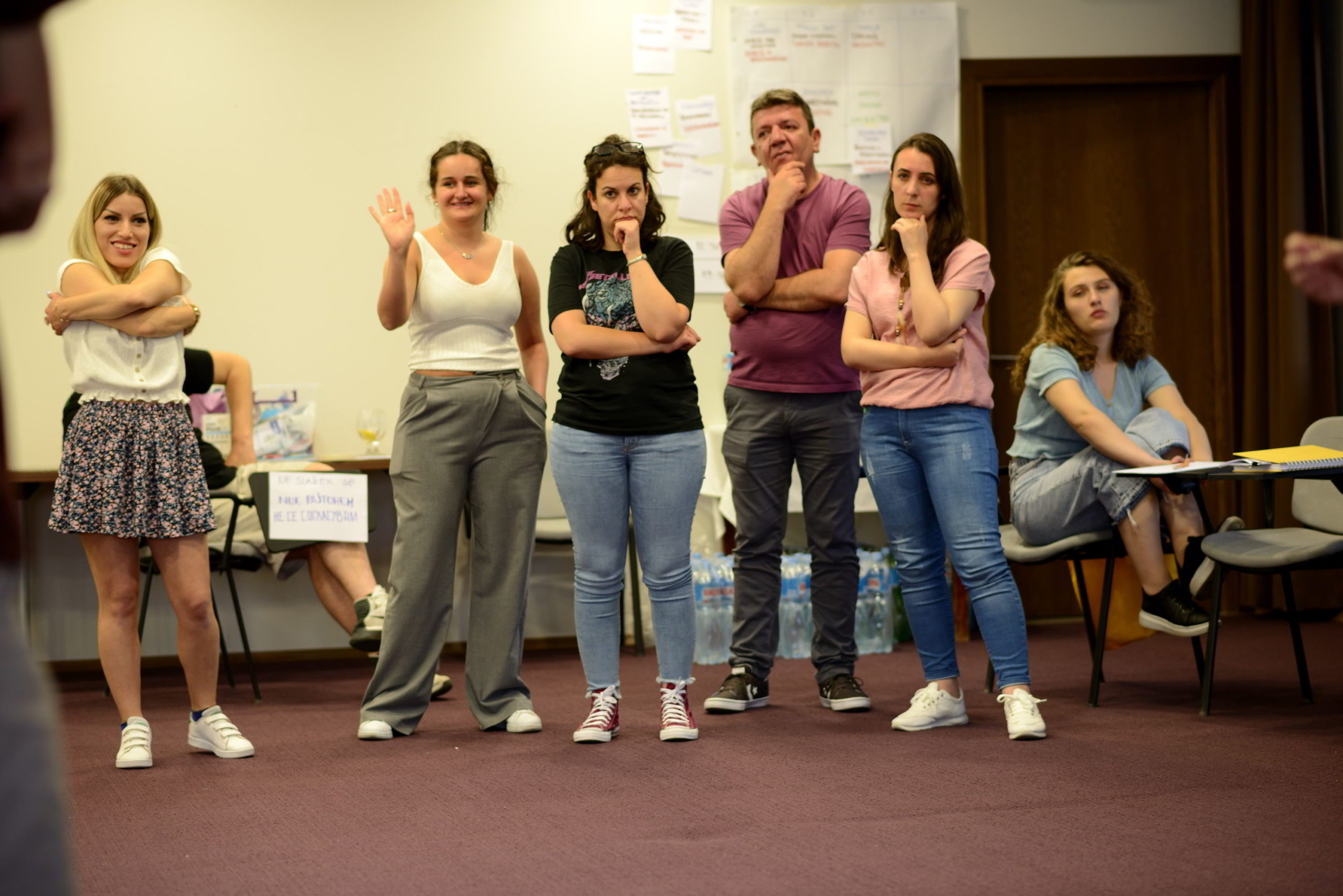The sixth trilingual “Mir-Paqe-Мир” peacebuilding training was held from 13 to 22 May in Veles, North Macedonia. This was the first training we managed to organise for participants from multiple countries since the Covid 19 pandemic.
The training brought together 16 participants from Serbia, Kosovo and North Macedonia.
The participants came from Mitrovica, Lipljan, Podujevo, Štrpac, Pristina, Uroševac, Prizren, Bitola, Skopje, Prilep, Ohrid, Preševo, Kragujevac, Novi Sad, Ljubljana (economic migrant from Serbia).
Questioning Narratives and Myths
The training started with an introduction and getting to know each other and tackled the topics of communication and teamwork, violence, discrimination, identity, gender roles in society, dealing with the past and peacebuilding.
The topics that left the deepest impression on the participants were discrimination and violence. An exercise that elicited valuable content started with the question: “What would need to change where my people are the majority in order to have a fair attitude to the past and take a step towards reconciliation?”
Many topics and questions discussed at the training are taboos in our societies, they are not spoken about, not even in the most intimate circles. “Others” are viewed as enemies and there is little room for examining the roots of such attitudes.
“Natural Albania, Unified Macedonia and Greater Serbia, what is the difference between these terms,” asked one of the training participants, while another expressed fear about what the future would bring, because in the past, problems in the Balkans always led to war.
The workshop on dealing with the past saw the most heated reactions when we discussed heroes in our societies, what they mean to us personally, what kinds of social relations are fostered based on the figures and acts that are glorified. An important link was made with our own roles and how others see us, based on various identities – this was also discussed at the training.
“I am bothered that in another place, they see me as some kind of terrorist, but I’m too scared to even kill a chicken,” said one participant frankly when talking about collective identities and how we are viewed through them, how some don’t see us as simply people, like them, but as collectives.
In order to recognise each other’s humanity, we have to meet, we have to put a face to our narratives, humanise them – this was said at one of the workshops, but it is not a conclusion, it marks the beginning of work that has to be done to deconstruct collective images and prejudices that we have about other peoples, as well as myths we foster about our own identities.
Together, we watched the CNA produced documentary “Intermittent Line” about the Macedonian-Albanian conflict from 2001 in order to start thinking about what conflicts bring and what kinds of legacies they leave for the future, but also about how important it is to make room for talking about our needs and our grievances.
“Wounds have to be laid bare in order to heal,” said one participant.
We are also glad we decided to do a workshop on gender roles in society, because there is a tendency across the whole region of regressing into stricter patriarchal frameworks. Or fetters.
Trust Builds Peace
Processes in our societies and the topics imposed by daily headlines also affected the activities and content of the training. With a war raging close by, it is difficult to talk about peaceful conflict resolution. Despite all these difficulties, we are glad that we had a chance to work with a very motivated group of people, prepared to get involved and support peace activities in their communities.
“I am troubled by the amount of hatred between countries in the Balkans. Debate and reconciliation in the Balkans should start from ordinary citizens, from us here. Each of us will come away with at least one more positive thought than what we had when we came. Politics does not represent us as individuals, but as peoples. To change politics, we first have to change ourselves,” said one participant at the training.
The training team concluded that it is very important to maintain this programme as the only peace training in the region conducted in three different languages, despite the difficulties we had with the organisation (uneven number of applicants from different countries, many cancellations).
Naile Keçmezi and Luljeta Ademi were the interpreters at this training.
The training team comprised Luan Imeri (Centre for Human Rights and Conflict Resolution, Skopje), Boro Kitanoski (Peace Action, Prilep – Tetovo), Ana Bitoljanu (First Children’s Embassy in the World Megjashi, Skopje), Nenad Vukosavljević and Katarina Milićević (Centre for Nonviolent Action, Sarajevo – Belgrade).
The photo gallery is available HERE

